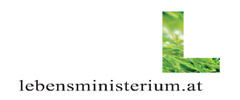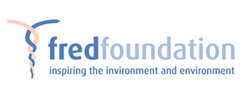Implementing a new chemicals safety framework
EU and JUSSCANNZ countries discuss chemical safety at regional SAICM meeting
05.12.2006 |Daniela Rosche
Key agenda items were among others regional coordination mechanisms, the organization and beefing up of the Quick Start programme, designed to assist less- developed countries with the implementation of the SAICM framework and how the Global Plan of Action, a key document in the SAICM framework can be expanded. Most importantly, governments, NGOs and other UN agencies dealing with chemicals management presented their plans to support the implementation of SAICM over the coming few years.
Women in Europe was present at the meeting as well as our IPEN colleagues and the Chemicals Secretariat from Sweden. Read more below about the plans of WECF to implement chemical safety as part of our SAICM activities.
-------------------------------------------------Thank you Mr. Co-Chair. On behalf of Women in Europe for a Common Future, I am happy to briefly introduce you to our plans in support of SAICM implementation.
We are a network of over 70 women’s and environmental organizations in 30
countries, encompassing then EU and the wider European Region. Our network has
been working on chemicals and public health for a number of years on the
national, regional, EU and international level.
In the EU, much of our efforts over the past 3-4 years have focused on securing
a strong REACH. Beyond the EU, our members have been active pushing the
implementation of the Stockholm Convention, dealing with obsolete pesticide
stockpiles and discussing chemicals safety.
We know that women and future generations given their different physiological
make-up, exposure patterns and vulnerability will be the first ones to benefit
from effective chemicals management. The results of effective chemicals
management are not only healthy women, healthy families and a healthy
environment, but also safe products, increasing industry sales renewed consumer
trust and lower costs for the clean up of hazardous consumer waste.
As a first step in support of SAICM implementation, we published the first
comprehensive English language publication written by women, for women called
“ Women and their Toxic World”. The publication focuses on hazardous chemicals
in every day consumer products, how women’s health are affected, what
legislative frameworks exist to protect women and future generations, and
finally what women can do themselves to reduce exposure and as the biggest
group of shoppers worldwide, promote safer products.
Our future work will continue to focus on high concern chemicals, such as
PBTs,vPvBs, CMRs, EDCs and POPs as listed for example as activity 54 in the
GPA. Given their hazards and risks, we believe that in the long-term, their
replacement by safer alternatives will be the most effective, also the most
cost-effective, way to protect women and future generations.
In that context, we will be looking at setting up national and regional
projects addressing a variety of consumer products ranging from toys to baby
equipment and cosmetics, focused not only on raising awareness and informing
but also at working with industry, especially downstream users and retailers on
how promote safer alternatives.
All of this work will next to SAICM, also tie in with our continued efforts to
support and promote the implementation of REACH, which will hopefully begin in
2007. Above this, our efforts will also ensure that SAICM governance objective
16 h will be met and women are equally involved in decision making on chemicals
policy and management.

































